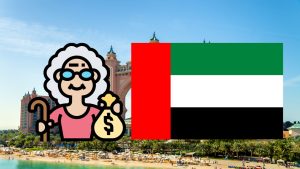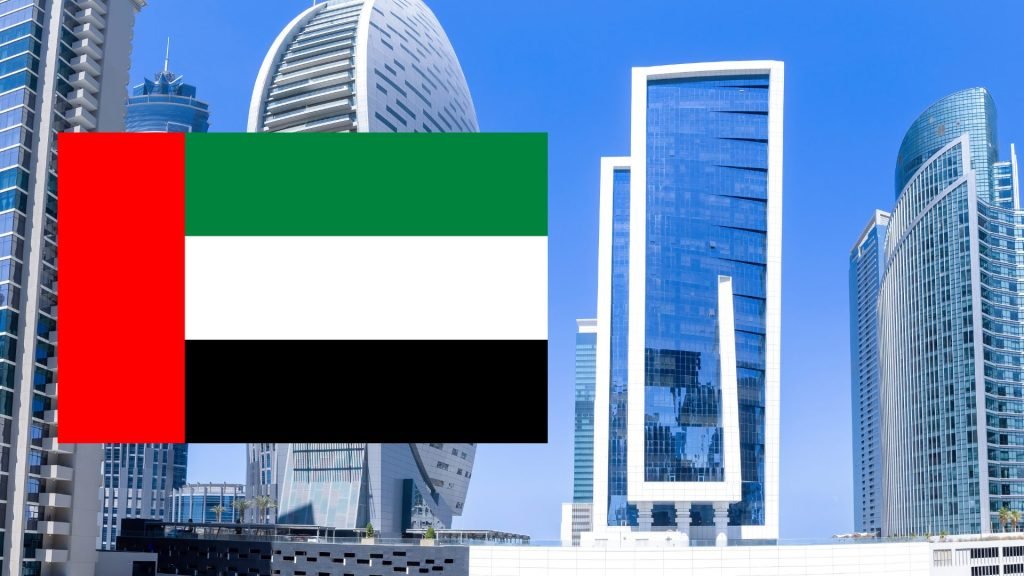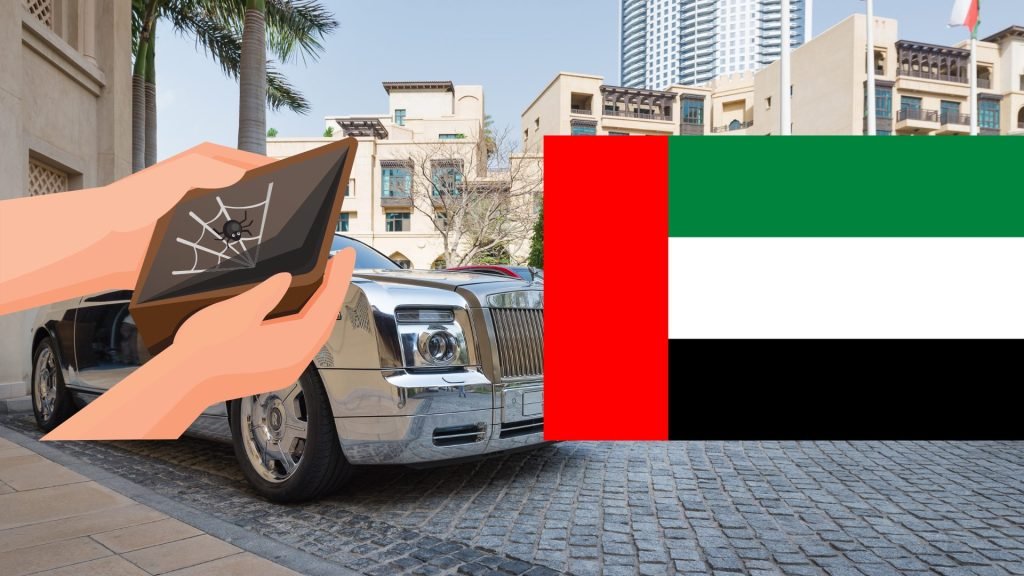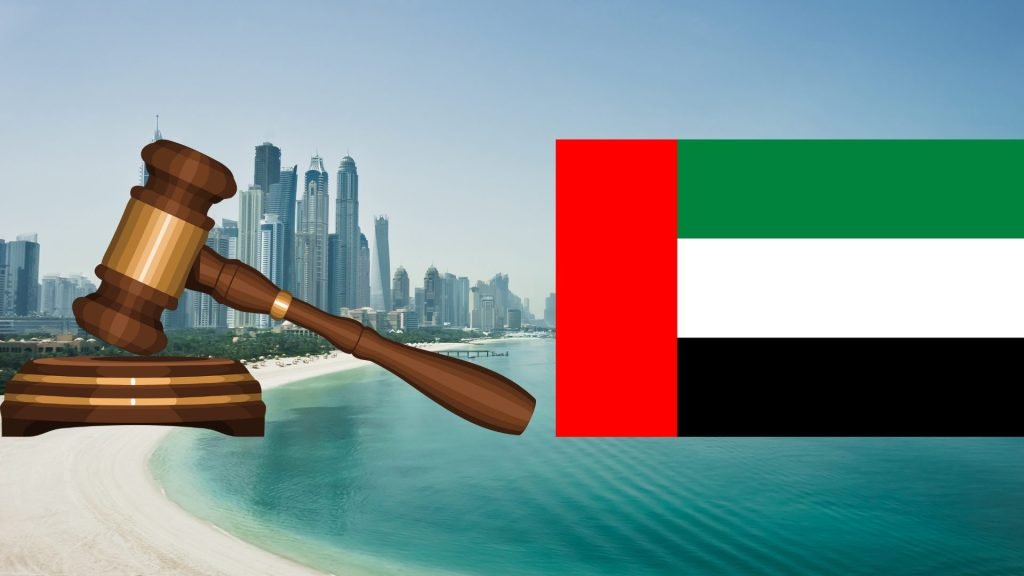Do you want to retire in Dubai? In recent years, Dubai has become a popular destination for retirees from all over the world, including an increasing number of Dutch people enjoying their retirement in Dubai.
Dubai offers a combination of a tax-friendly climate (with, for example, 0% income tax), modern facilities, infrastructure, buildings, high-quality healthcare, and a luxurious lifestyle that makes Dubai particularly attractive for those who want to enjoy their golden years in all luxury and comfort.
When you retire in Dubai, you essentially have two options: either you have worked in Dubai first and then retire in Dubai, or you move to Dubai when you are already retired to emigrate to Dubai. In this article, we will guide you step by step through everything you need to know about retiring in Dubai.

Why choose retirement in Dubai?
Why choose retirement in Dubai? First, we will answer the question of why Dubai is an attractive city for your retirement.
What makes Dubai attractive for retirees?
Dubai offers retirees a unique combination of sun, safety, and financial benefits. The city is known for its modern amenities, low crime rates, and many other foreigners (around 90% expats).
For foreigners, Dubai means a luxurious and carefree lifestyle far abroad, but with plenty of opportunities to stay active and socially involved due to all the other foreign retirees. Additionally, English is widely accepted, which facilitates integration because you can talk to almost everyone (provided you speak English yourself, of course). There are also many other Europeans in Dubai.
The luxurious standard of living, the wide range of recreational opportunities, and the excellent healthcare system make Dubai an attractive option for those who want to make the most of their retirement years and enjoy worry-free living.
Differences with retirement in Europe
What are the differences in retirement between Dubai and Europe? Retirement in Dubai is quite different from, for example, the Netherlands (Europe) when you look at the financial picture. The biggest difference lies in the accumulation and management of your pension. While in the Netherlands the pension system is partly supported by the government (AOW) and employers, in Dubai you are entirely responsible for your own pension provision.
There is no mandatory pension contribution from employers or the government. Moreover, Dubai has no income tax on pension income, while in the Netherlands and most other European countries, you do pay tax on your pension.
If you want to retire in Dubai and have worked there before, you have almost never accrued a pension from your employer. So make sure that as soon as you start working or entrepreneurship in Dubai, you also have a fund for your retirement, for example by investing in Dubai.
If you are emigrating to Dubai from the Netherlands and have accrued a pension in the Netherlands, you can still have it paid out. So you will still receive AOW. It may be that you also pay Dutch income tax on this. In some cases, an exception can be made, but this differs per situation. The Social Insurance Bank (SVB) pays out the AOW. You could therefore contact the Social Insurance Bank (SVB) to discuss your situation.
Lastly, you also need to take into account the costs in Dubai. Dubai offers a lot of luxury, so Dubai can also be very expensive if you make use of all that luxury. The cost of living therefore also differs compared to countries in Europe: fuel and energy are relatively cheap, but renting a house in Dubai can be expensive, depending on the location and other factors.
Things like groceries can also be more expensive in Dubai because much more is imported, as little can be grown locally in the desert.
Dubai is known for luxury, and most people go there for the luxury, but of course you can also lead a very ‘normal’ life in Dubai that is not so exceptionally expensive. However, if you prefer to go to a country with a low budget, you could also consider cheaper countries such as Asian countries like Thailand, the Philippines, or Indonesia.
Can you move to Dubai as a retiree?
Can you move to Dubai as a retiree? Yes, you certainly can. Since 2020, Dubai officially offers a special retirement visa for foreign retirees. This visa is intended for people aged 55 and older and provides a legal residence permit for a period of five years, with the possibility of extension.
This makes it legally fully permitted to live in Dubai as a retiree, provided you meet the financial conditions.
What rules and conditions apply for retirement in Dubai?
So you can move to Dubai as a retiree. The basic condition for obtaining a retirement visa in Dubai is that you are at least 55 years old and must have worked for at least 15 years inside or outside the UAE. In addition, you must meet at least one of the following financial criteria:
- A monthly income of at least AED 20,000 (approx. €5,000) OR
- Minimum savings of AED 1 million (approx. €250,000) fixed for at least 3 years OR
- Owner of property in Dubai worth at least AED 1 million (approx. €250,000) OR
- A combination of savings and real estate with a value of at least AED 1 million (approx. €250,000)
Read the most up-to-date conditions on the official website: Residence visa for the retired. These requirements will also encourage people to buy a house instead of renting a house in Dubai.
Furthermore, valid health insurance, a medical examination, and a certificate of good conduct from the Netherlands are required to obtain a visa for your retirement in Dubai. The application process is done through the GDRFA or the Visit Dubai portal.

Legal framework and residence status
Retirement visa for Dubai: conditions and procedures
The retirement visa is a five-year residence visa for expats aged 55 or older. It starts with gathering all necessary documents, including: passport copies, proof of income or savings, proof of real estate, health insurance, rental contract or property papers, and a completed application form.
The form can be submitted via the GDRFA website, the Dubai Now app, or at a government office. You also need to undergo a medical examination and pay administrative fees.
Duration and extension of the retirement visa
How long is a retirement visa valid in Dubai? A retirement visa for Dubai is valid for five years as standard. After this period, you can extend the retirement visa, provided you still meet the financial and medical requirements. In Dubai, it is not possible to get an unlimited visa.
The visa costs range on average between AED 3,700 and AED 10,000, depending on the chosen application route, additional medical requirements, and insurances. Extension is relatively simple as long as your financial situation remains stable and your health insurance remains valid.
Alternative residence options
If you want to retire in Dubai but don’t meet the requirements, there are still other possibilities, but these also have financial requirements.
For those who don’t qualify for the standard retirement visa, there are alternatives such as the investor visa, the Golden Visa program, or a partner/family visa. The investor visa is available for people starting a business in Dubai or investing in real estate in Dubai. However, you’re probably not going to do this if you’re retired.
The Golden Visa offers long-term residence status (10 years) to certain categories, including real estate investors and professionals. For those with family in Dubai, it can be attractive to be sponsored through a family member who already has a visa. These alternative methods can offer more flexibility but often require higher financial commitments or other conditions. So if you buy a house in Dubai, you already own real estate which may allow you to get a visa.
Tax benefits of retirement in Dubai
No income tax with retirement in Dubai
One of the biggest financial advantages of living in Dubai is no income tax (0%). This means you can receive your full pension benefit gross, without tax deductions to the UAE.
However, be aware: this does not automatically mean you no longer have tax obligations in the Netherlands or in your other country of origin. The Tax Authorities may continue to levy taxes on your pension (AOW), unless you have an exemption through the tax treaty between your own country and the UAE. You must explicitly request this exemption from the Tax Authorities in your own country.
Wealth Tax and Inheritance Law
Dubai has no wealth tax or inheritance tax, making it attractive for wealthy retirees. However, inheritance law in the UAE differs from that in the Netherlands.
In the UAE, Islamic inheritance law (Sharia) is generally followed, unless you as a foreigner have previously drawn up a will according to your own national law. This will must be registered with the Dubai International Financial Centre (DIFC) Wills Service. This provides legal certainty for surviving relatives and prevents unintended distribution of inheritance.
In short: do you want to retire in Dubai? Then you do need money. Dubai wants to attract people who are wealthy and can thus invest in further building the beautiful city. If you have this wealth? Then you are more than welcome and can enjoy all the luxury Dubai has to offer.

Dubai offers retirees a tax-friendly climate (0% income tax), modern facilities, excellent healthcare, and a luxurious lifestyle.
Yes, since September 2020, you can apply for a special retirement visa if you are 55 years or older.
You must be at least 55 years old, have worked for at least 15 years (in or outside the UAE), and meet one of the financial requirements such as a monthly income of AED 20,000 (€5,000) or AED 1 million (€250,000) in savings or real estate.
In Dubai, you don’t pay income tax. However, you may still be liable for taxes in your country of origin, depending on tax treaties.





